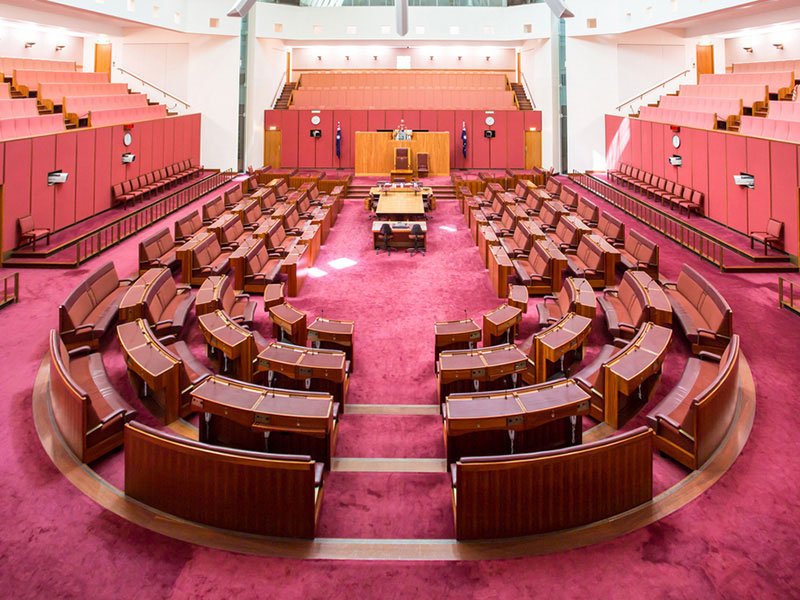A Senate committee has rejected legislation that would regulate cryptocurrency exchanges in Australia due to concerns over the operation of the reforms, despite supporting the consumer protections that such a licensing regime would bring.
The Economics Legislation Committee, chaired by Labor Senator Jess Walsh, on Monday released a final report into the Coalition’s Digital Asset (Market Regulation) Bill, which proposes a licence scheme for digital asset exchanges, digital asset custody services, and stablecoin users.
The bill, introduced by Liberal Senator Andrew Bragg in September last year, is largely based on the work of the 2021 Select Committee on Australia as a Technology and Financial Centre, chaired by Mr Bragg.

Some of the recommendations from the bipartisan committee were included as part of a payments and crypto reform plan, but the remainder have since been reframed by the Albanese government.
A framework for the licensing and regulation of crypto service providers was proposed by the government in December last year as part of wide-ranging reforms to modernise the payments systems, but it is yet to move forward.
The inquiry into the bill heard that while the objectives were well intended, submitters were divided over whether a “bespoke” legislative framework for digital assets was necessary over amendments to existing regulation.
Others, like FinTech Australia, raised concerns with the bill’s lack of detail around digital asset exchange requirements and governance requirements for stablecoins, as well as the time to implement the reforms.
With many submitters raising concerns with the proposed reforms, the committee concluded that while further regulation is warranted, the bill “lacks the detail and certainty that investors, consumers, and the industry should be provided with”.
“Crucially, the bill fails to interoperate with the established regulatory landscape, creating a genuine concern for regulatory arbitrage and adverse outcomes to the industry,” the committee said in its final report.
The committee said its inquiry had heard evidence that a bespoke regulatory framework was “not supported or workable” for industry and that further consultation was necessary, noting that had many submitters had backed this approach.
Further consultation on “fit-for-purpose” digital asset licensing and custody requirements that build on the token mapping exercise undertaken last year is expected in the coming weeks, according to the report.
“The committee is of the view that the bill is at odds with the measured and industry accepted approach the government is undertaking to ensure that current and new regulations are well considered and effective in supporting consumers and the digital assets industry,” it said.
A dissenting Coalition report said that the government has “no genuine interest in regulating digital assets” to date and that there was “no indication that draft legislation will be prepared within the next 12 months”.
The report points to progress made in the European Union with the approval of the Markets in Crypto-Assets Regulation in April and in the United Kingdom with the passage of the Financial Services and Markets Act.
“The idea of Minister Jones directing the Australian Treasury to develop a unique solution to the various definitional issues is completely misguided. It risks a slow and isolationist approach when Australia could simply leverage the work of our allies and partners,” Coalition senators said.
In a statement, Senator Bragg said the government’s decision to restart the consultation process on digital assets has “left consumers exposed to the risk of an unregulated market” and “driven investment offshore”.
“The bill demonstrates an Australia crypto bill is entirely viable. Waiting on the government to act is not an option. That is why the Senate should move to debate and pass this bill,” Mr Bragg said.
“When governments have failed to move on proper inquiries into the financial sector, the Senate has forced their hand. The Senate should do the same on crypto regulation.”
Do you know more? Contact James Riley via Email.

